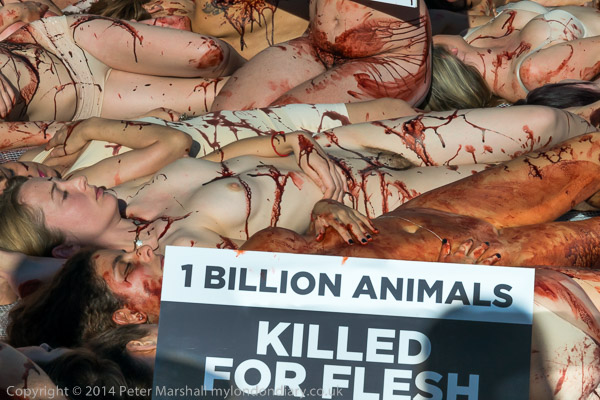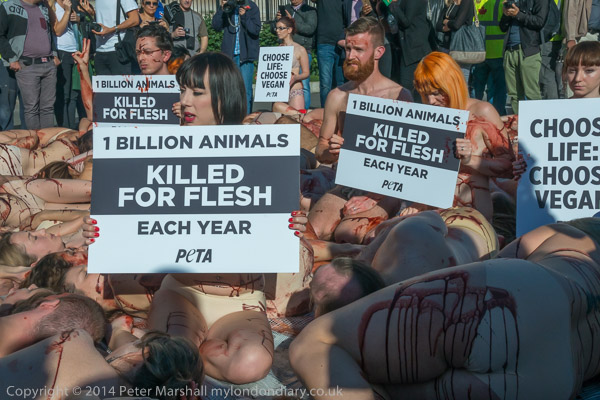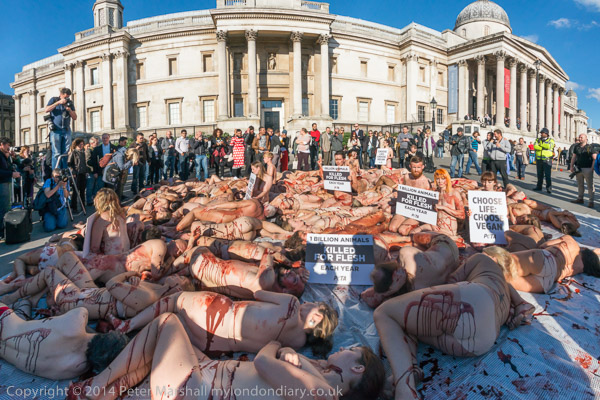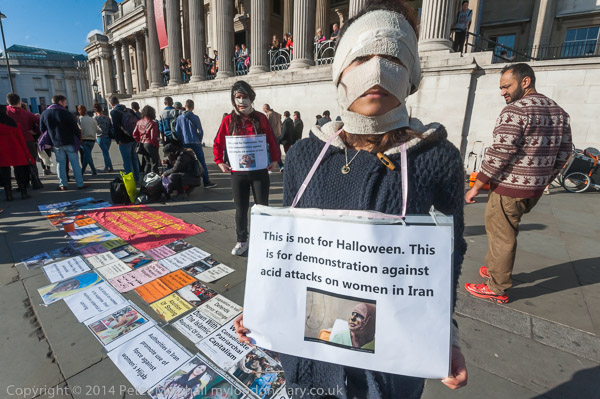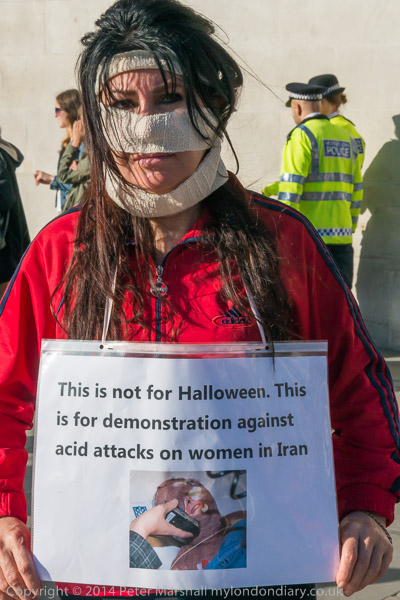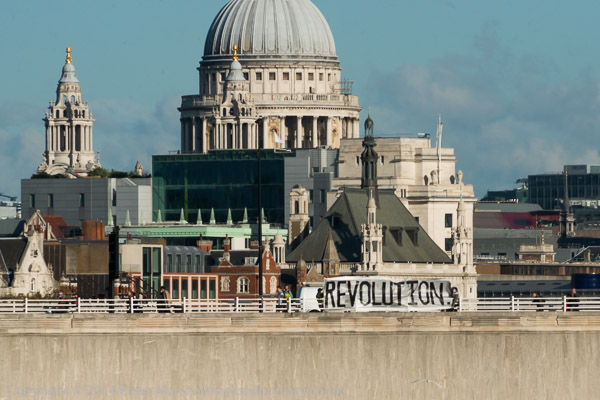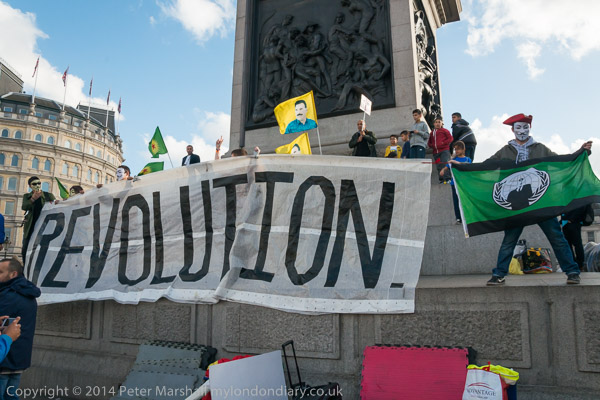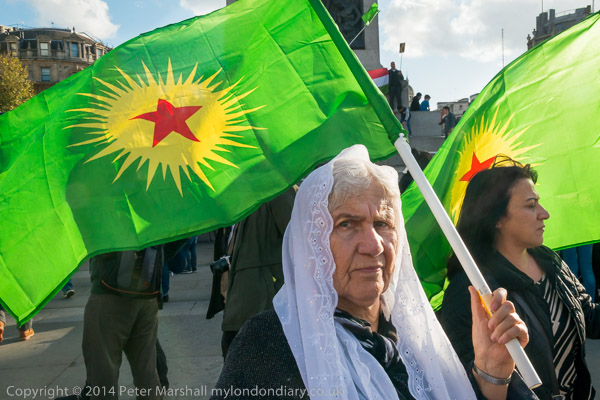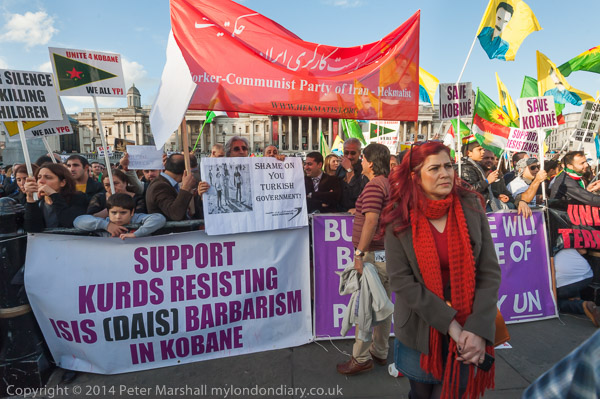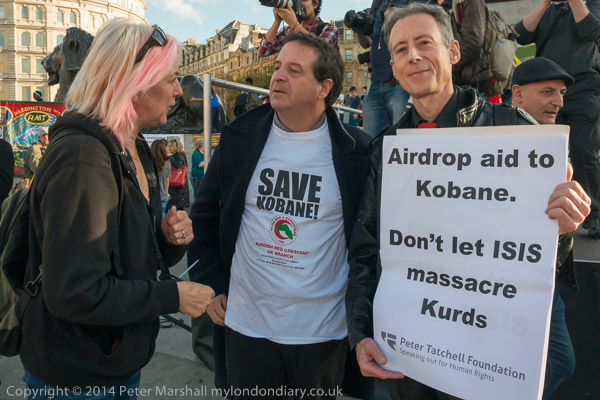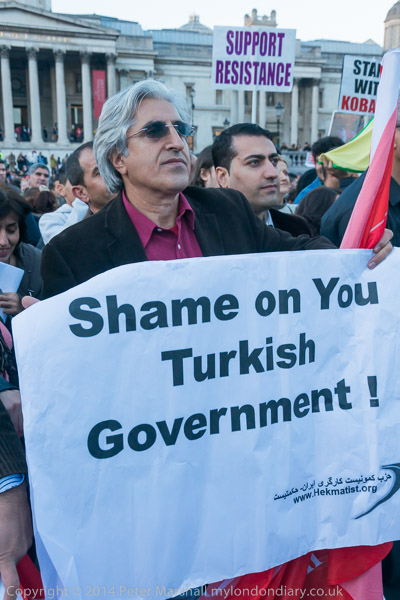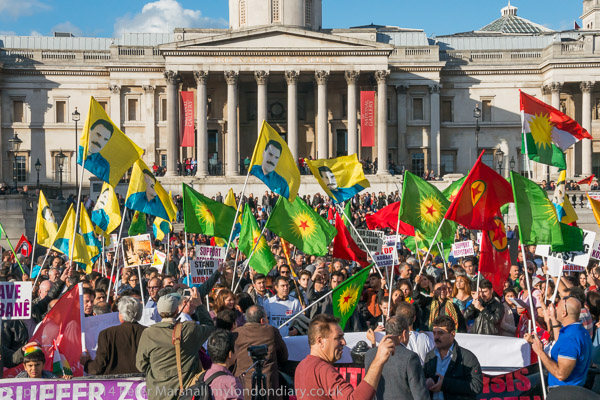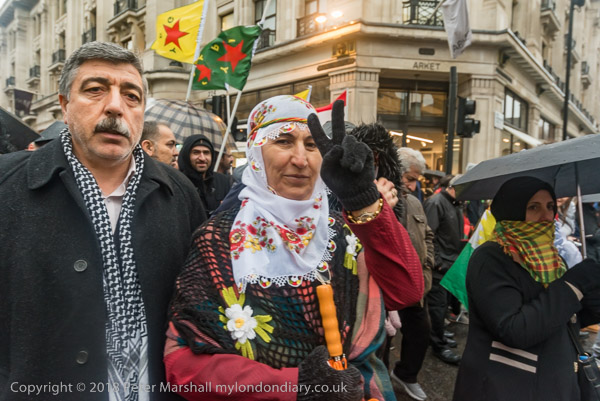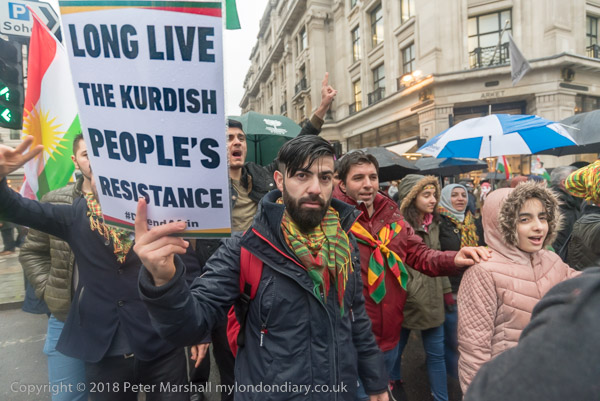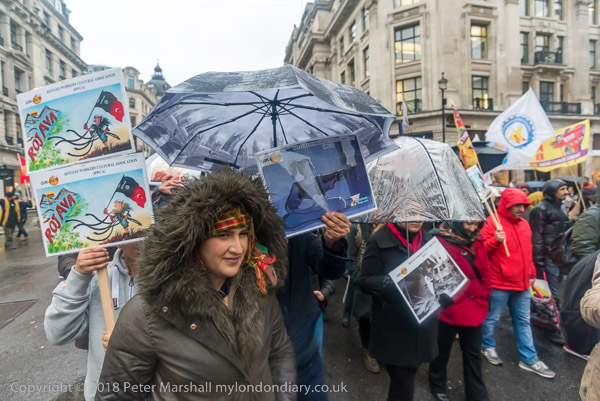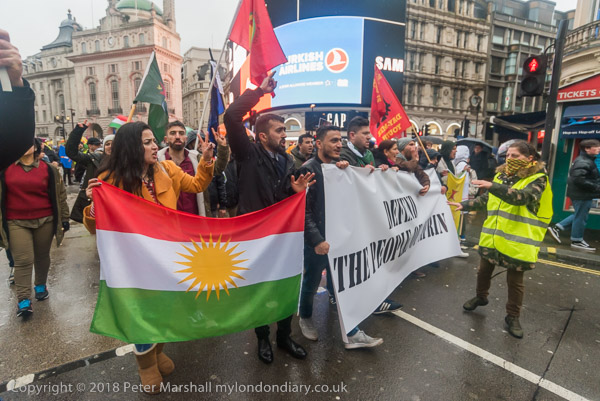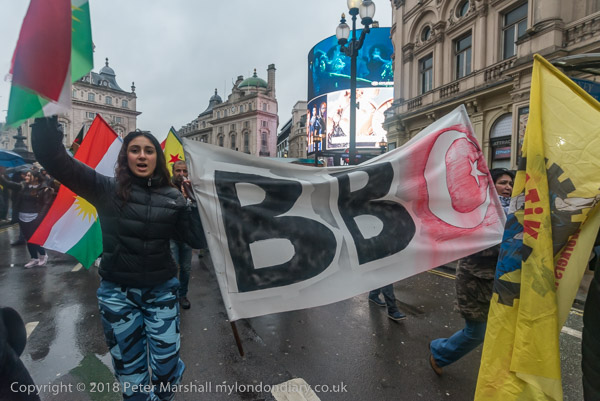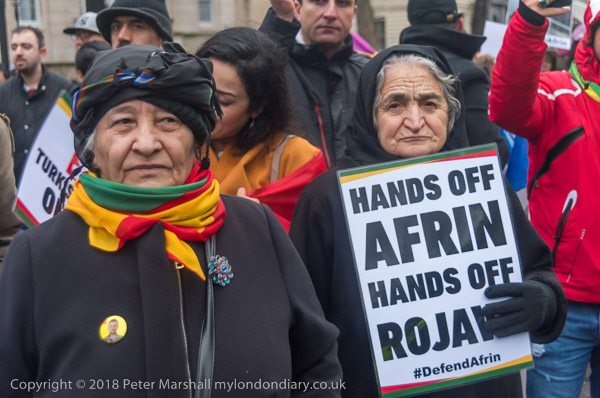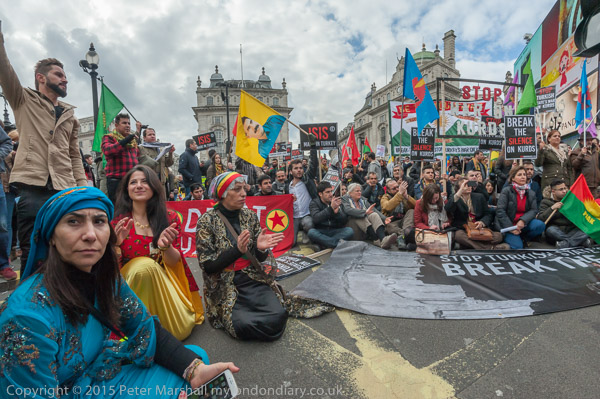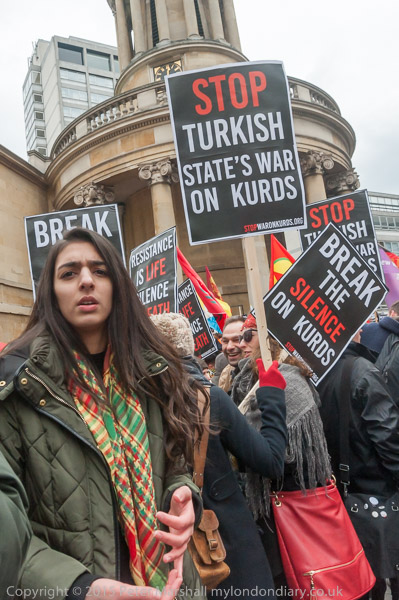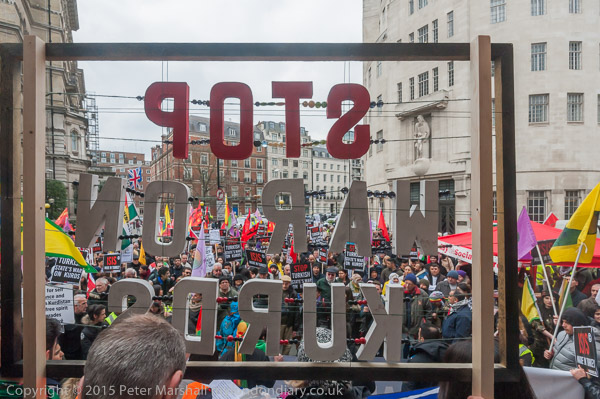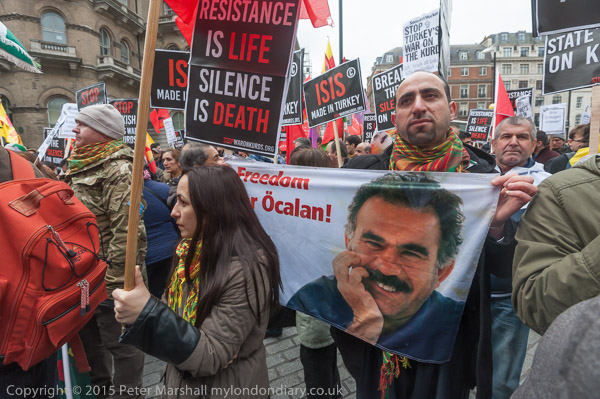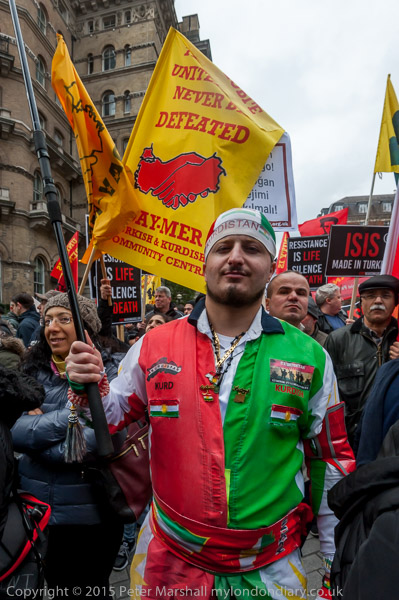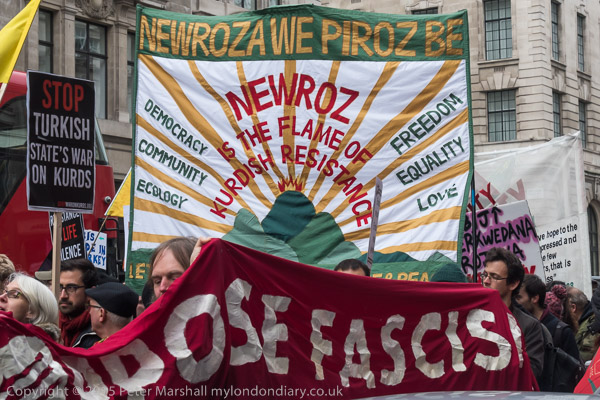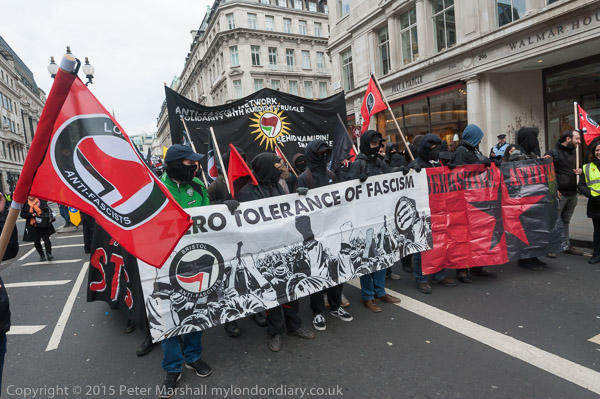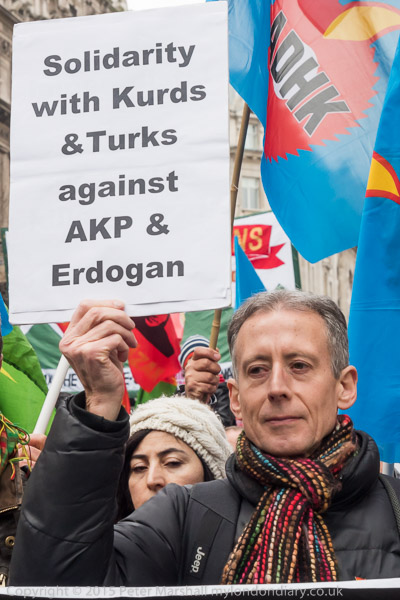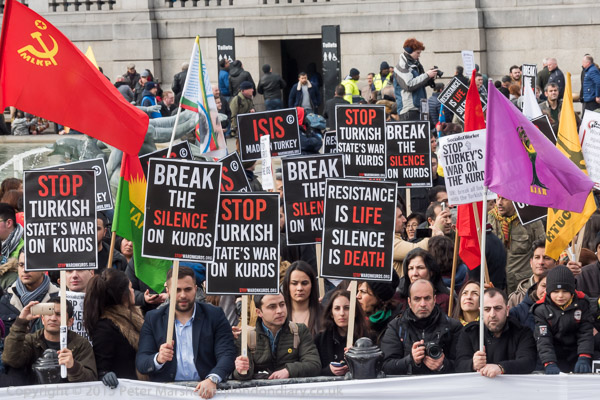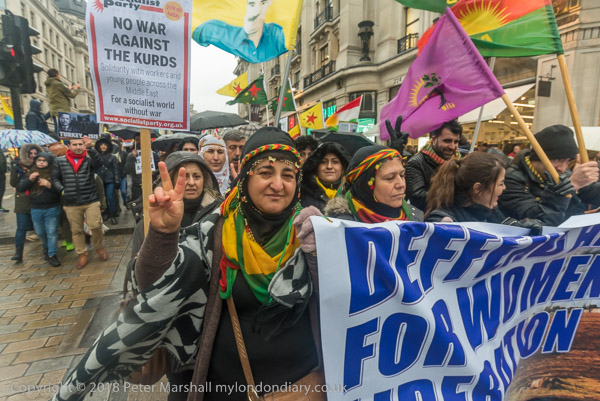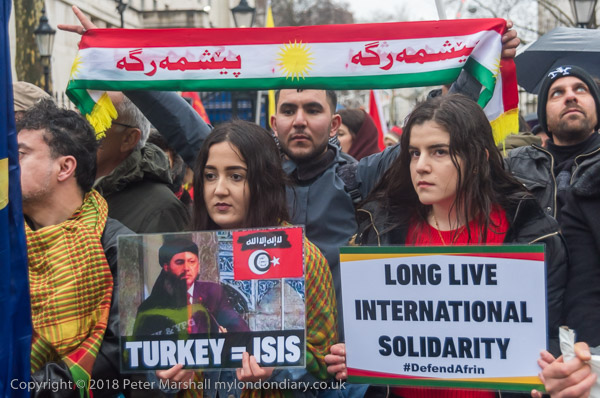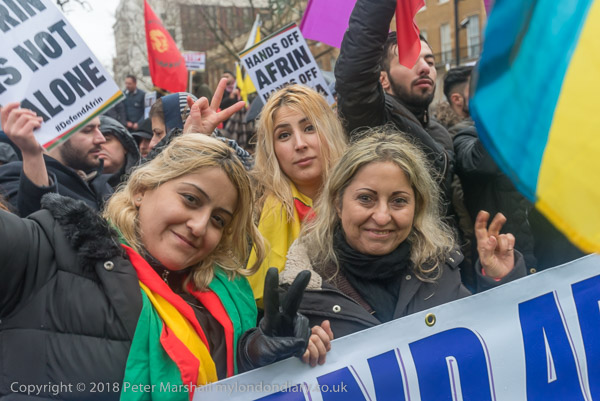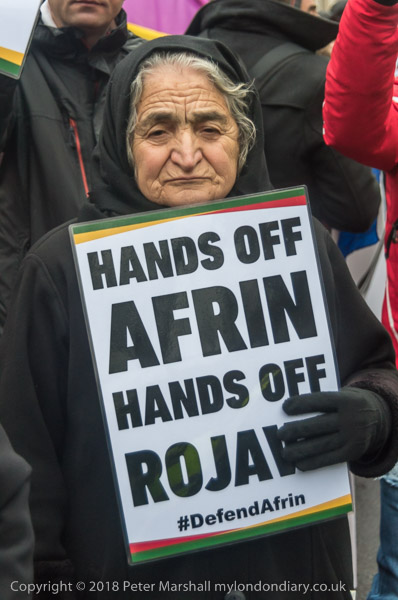Slavery, Cruelty to Animals & Afrin: On Saturday 27th January 2018 I photographed a protest against the imprisonment, torture and slavery of African migrants in Libya and their slavery in Dubai, the continuing protests against animal cruelty outside the Canada Goose store and a march by Kurds calling for an end to attacks by Turkish forces on Afrin. That protest took the same route as last Saturday’s protest against the attacks on Kurds in Syria, now by the Syrian army.
End UAE Support For Slavery In Libya
UAE Embassy
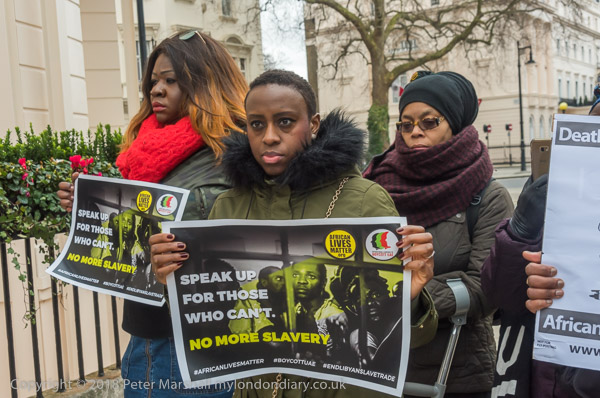
The protest outside the UAE Embassy had not been well advertised and was rather smaller than the organisers had hoped or the police had planned for. The United Arab Emireates was targeted as they fund armed groups in Libya which imprison, torture and kill African migrants and sell them as slaves.
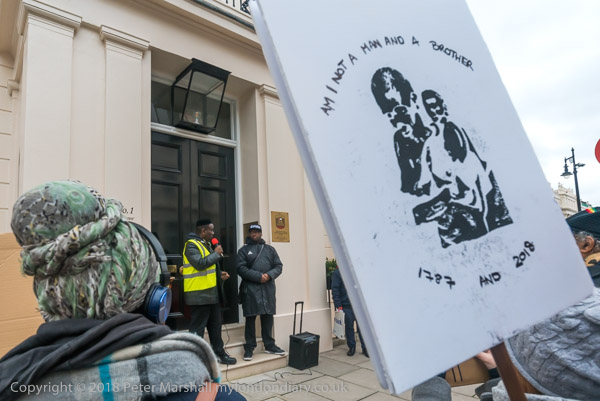
African migrants are also trafficked to be slaves in Dubai, the largest city and capital of the UAE and the protest called for an end to this and for help to be given for slavery victims in Dubai to return to their families in Africa.
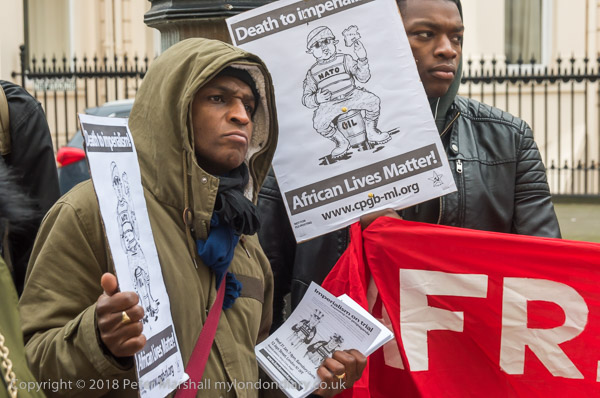
End UAE support for slavery in Libya
Canada Goose Protests Continue
Regent St
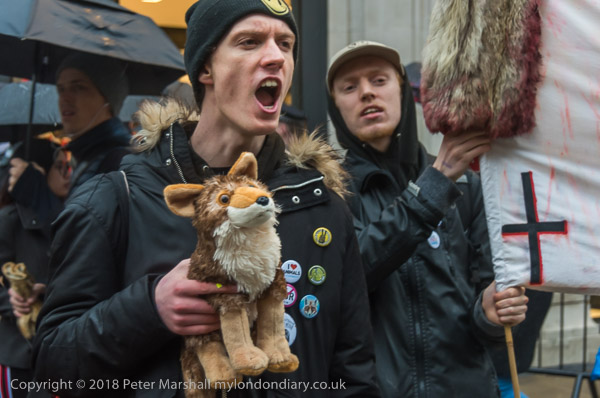
Protesters continue their regular protests outside the Canada Goose flagship store in Regent St calling on shoppers to boycott the store because of the horrific cruelty involved in trapping dogs for fur and raising birds for the down used in the company’s clothing.

Their activities have been restricted by injunctions obtained by the store but they were still protesting every Saturday and on at least one other day each week.
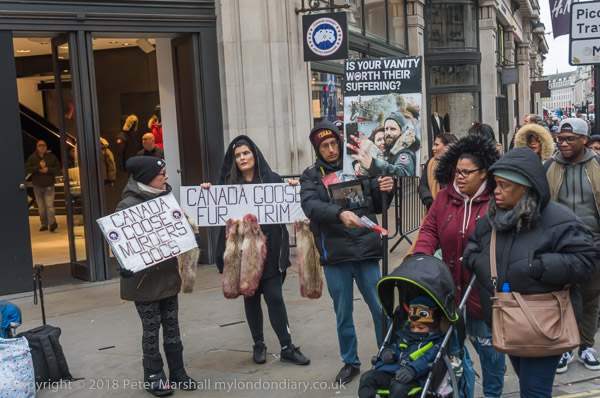
They say ‘Canada Goose Murders Dogs’ . The clothing they sell uses fur from wild dogs caught in traps; caught in the traps and wounded by them, they slowly bleed to death and may be attacked and eaten by predators while still alive before the trappers return. Some of those caught gnaw through their own legs to escape and die slowly elsewhere.
Canada Goose protests continue
Defend Afrin, Stop Turkish Attack
BBC to Downing St
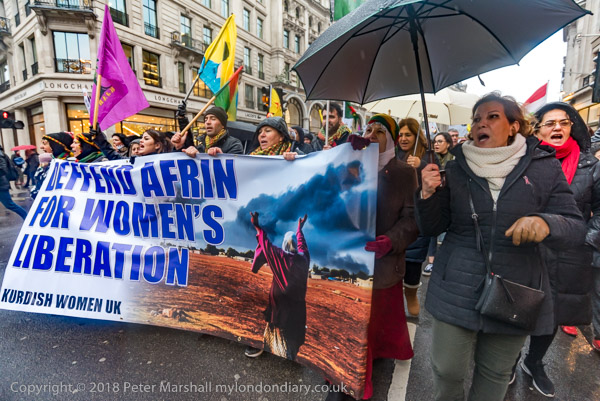
Several thousand, mainly Kurds took part in the march calling for an end to the attacks by Turkish forces on the Afrin Canton of Northern Syria, now a part of the Democratic Federation of Northern Syria (DFNS) or Rojava, a de-facto autonomous region in northern Syria since the 2011 revolution.
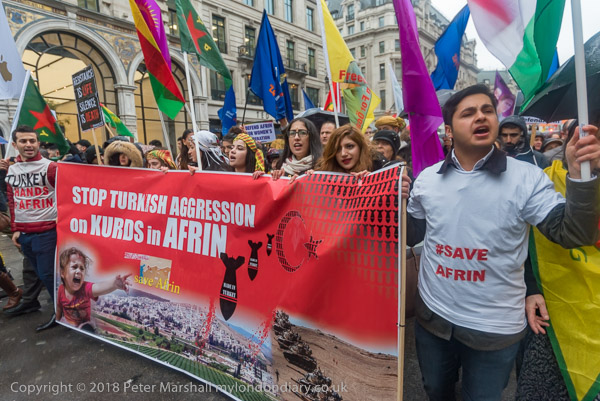
Many see Rojava and its democratic constitution which treats all ethnic groups – which include Arabs, Assyrians, Syrian Turkmen and Yazidis as well as Kurds – equally and liberates women as a model for the future of this and other multi-ethnic areas.
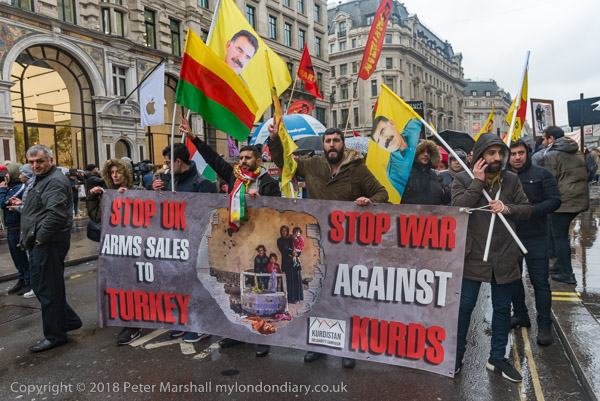
Turkey has long been engaged in a fight against the Kurds inside Turkey and was now attempting to eliminate those in areas close to its border with Syria. The PKK, the Kurdistan Workers’ Party, a Kurdish nationalist organisation regarded by Turkey and its allies as a terrorist organisation, has been in armed conflict with Turkey since 1984, demanding equal rights and Kurdish autonomy in Turkey.
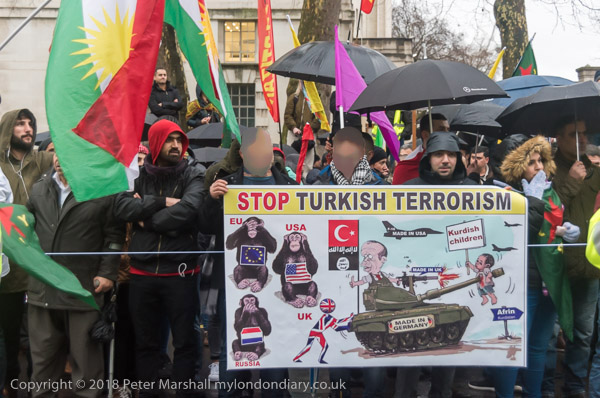
It was Kurdish forces, with the help of US air support that defeated ISIS in Syria, while Turkey was aiding ISIS in smuggling out the oil which financed their activities. But Turkey has the largest military forces in the area including weapons sold to them by the UK, France and USA as a member of NATO.
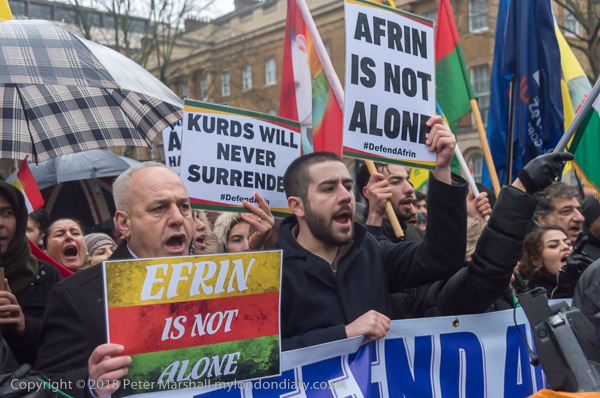
The PKK is a proscribed group in the UK and the police apparently seized a few PKK flags at the start of the march. It’s leader Abdullah Ocalan has been held largely in isolation in a Turkish jail since 1999, though in 2025 he called for the PKK to dissolve itself and announced an end to their insurgency against Turkey.
Many more pictures on My London Diary: Defend Afrin, stop Turkish Attack.
Flickr – Facebook – My London Diary – Hull Photos – Lea Valley – Paris
London’s Industrial Heritage – London Photos
All photographs on this page are copyright © Peter Marshall.
Contact me to buy prints or licence to reproduce.
